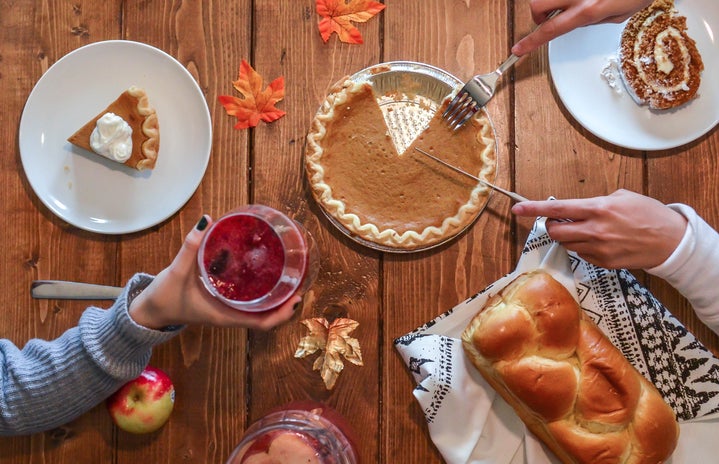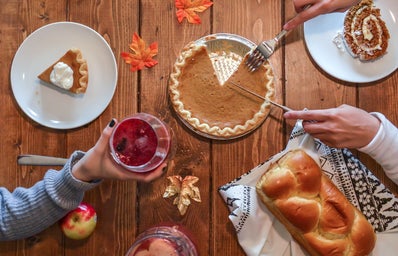It is that wonderful time of the year again. With a variety of holidays, including Christmas, Hanukkah, Kwanzaa, New Year’s and a plethora of other wonderful events going on, we know that many of them will be accompanied by a variety of delicious and fun foods. These foods, however, are often at the top of diet no-go lists proposed by diet culture throughout the year, including breads, pastries, candies, pastas and a variety of other things. I even saw a girl on TikTok who said that soup was unhealthy for you, at least if you add things like potatoes, heavy cream or anything else to make it more hearty. Now if you are feeling the weight of diet culture on you while you’re home for the holidays, let me tell you why diet culture isn’t worth listening to.
First off, there is no such thing as good or bad food. Don’t get me wrong, certain foods are calorically superior to others, and eating a cupcake compared to an apple is not going to give you the same nutritional value. Foods are not morally good or bad though. Despite what diet culture would like you to believe, eating a cupcake does not make you a bad person, nor does eating an apple make you a good person. Food does not have a moral index; it is simply food. I promise you that you are not a bad person for indulging a little this season, especially in family settings. You are also not a better person for abstaining from the traditional holiday food or beverage, so try to separate food from your moral obtuseness this holiday.
Another big thing to remind yourself of is why diet culture exists—to make money. The juice cleanses, 20-day fixes and tea detoxes are not for your health, they are for your wallets. We need to remember as consumers in general that companies are mostly uninterested in the dignity of the human person, and the institution of diet culture is no exception to that. They will feed you anything, and I mean anything, and chock it up to pseudoscience or just blatant lies. We need to consume content responsibly, and diet culture needs to be taken with a grain—or a whole bottle—of salt. Remember this when the articles come out about what you can eat at Christmas dinner or how you can detox the day after.
This abstinence from holiday foods also takes away an important part of many of our cultures. Many of the foods we eat during the holiday season have a significance to the holidays that we are celebrating, and taking that away is like taking away a piece of ourselves. Food is also a common way that families and communities come together, so when you take that away, it can cause a disconnect between the person and their people. There is nothing wrong with celebrating cultural and familial traditions, and that includes those revolving around food. You should never feel like you need to sacrifice a part of who you are in order to meet your caloric maximum or your macronutrients for the day.
You are always enough, even during the holiday season. You are always worth more than what you eat, and you always will be, no matter what. Even if diet culture tells you otherwise, what you eat this December will not change your worth, positively or negatively. So enjoy yourself this holiday season, because you are worth celebrating.


